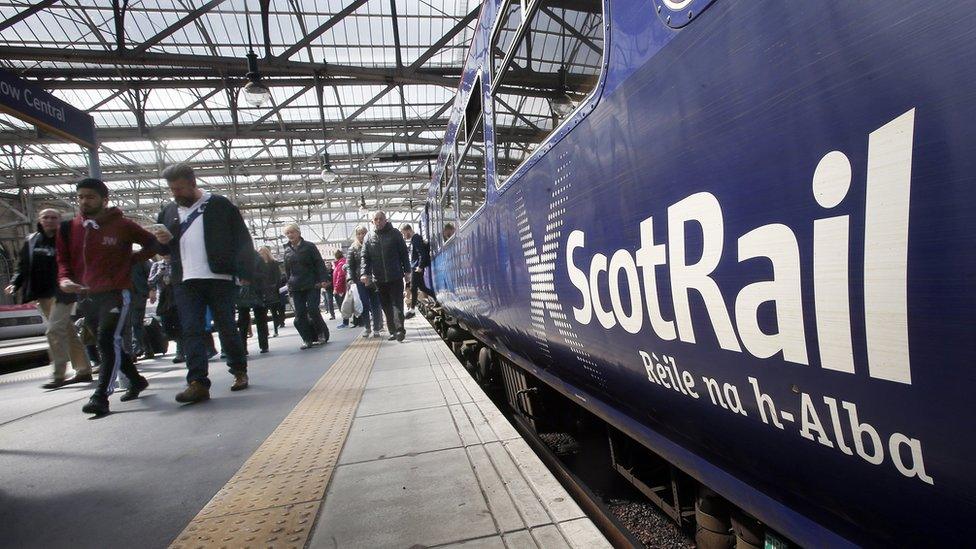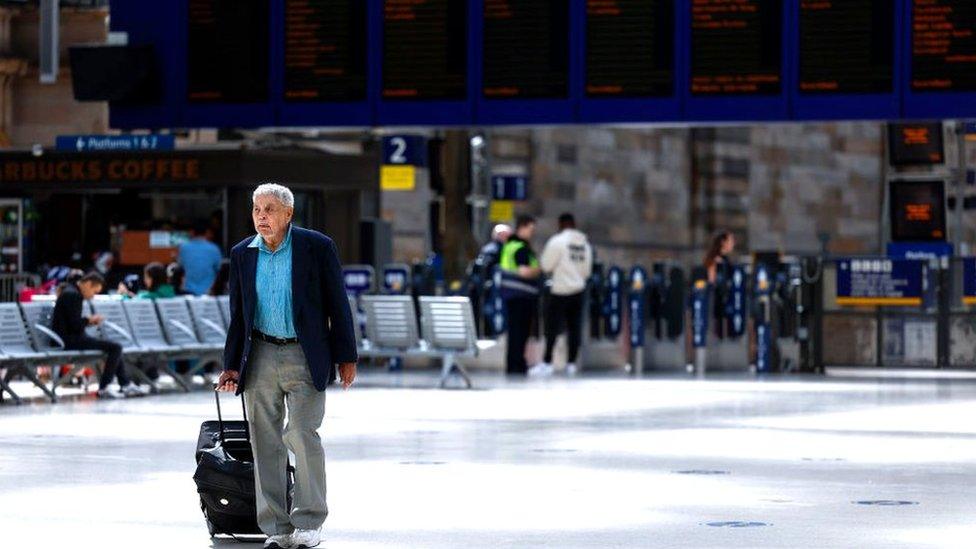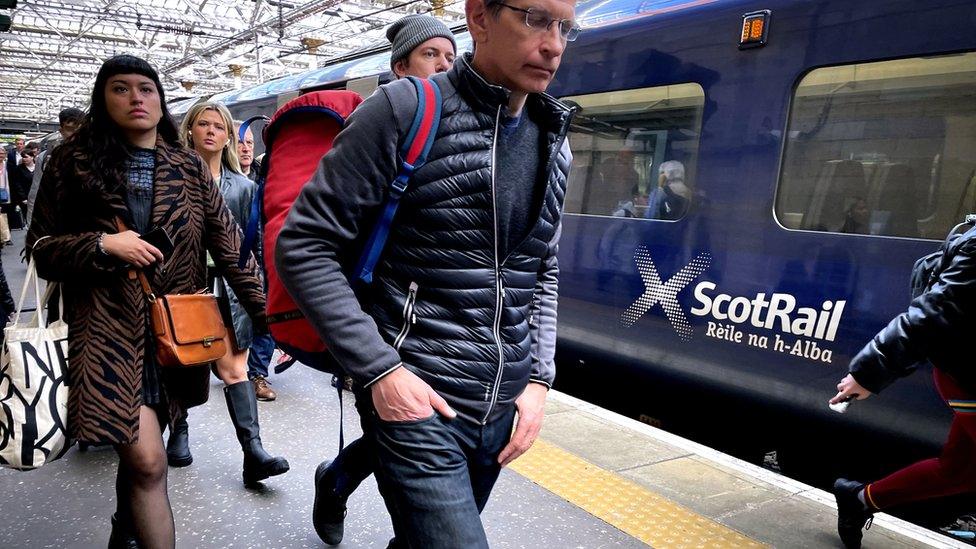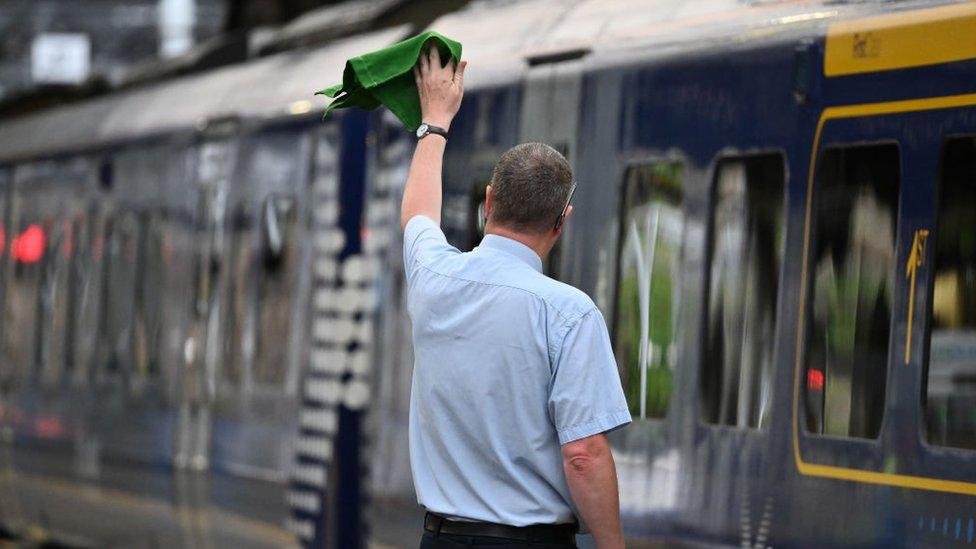Rail services disrupted by latest ScotRail 24-hour strike
- Published
RMT members picket outside Edinburgh's Waverley station
There is major disruption to Scotland's rail services as ScotRail workers stage their latest 24-hour strike.
More than 2,000 RMT members are taking part in the action on Saturday after the union rejected a 5% increase and a £500 payment as "not enough".
ScotRail, which is now nationalised, has described the RMT's demands as unaffordable.
Trains are only running on three routes in the central belt, with all other services cancelled.
Fans heading for Scotland's first autumn rugby international at Murrayfield are advised to consider alternative arrangements, as there will be only a very limited service.
The strike involves staff such as ticket examiners, station staff and cleaners. The three routes operating from 07:30 to 18:30 are:
Milngavie - Edinburgh Waverley via Glasgow Queen Street Low Level (half hourly service)
Glasgow Central - Lanark (hourly service)
Glasgow Central - Larkhall (hourly service)
The latest pay offer would have given workers a £500 uplift in return for using new technology on top of the 5% that had already been offered, which ScotRail said was the equivalent of a 7.5% pay rise for the lowest paid.


This is ScotRail's second 24-hour strike by RMT transport union members, to add to all those one-day stoppages in protest at other rail companies. Is this how a newly nationalised rail service is meant to look?
The first RMT strike over ScotRail's pay offer was earlier this month, on the day the SNP conference departed Aberdeen.
Members moved from a vision of a greener, smooth-running Scotland in the P&J Arena to the city centre, and a clunking re-engagement with a very different reality on the rails. When they do run, trains south of Aberdeen are all diesel.
There's a lot of work to do, and a lot of money to find, if ScotRail is to meet expectations of the public ownership that began just over six months ago, and if it's to banish diesel from the fleet, as intended, within only 13 years.

RMT Scottish organiser Mick Hogg, however, told the BBC that with inflation running at more than 10%, it was "nowhere near" acceptable.
He told Good Morning Scotland that strike action would continue "as long as it takes" to secure a better deal, and urged the Scottish government, which has owned ScotRail since April, to intervene.
"The Scottish government should take control of the situation and instruct ScotRail to get round the negotiating table and hammer out a deal," he said.
ScotRail said it had worked hard to improve the offer in a way that that was affordable to the Scottish public, given the financial challenges.

The Scottish government said it respected the workers' right to strike, but said the latest offer should have been put to the union members.
The Scottish Conservatives described the strike as "selfish". Transport spokesman Graham Simpson added: "The militant RMT union is holding the whole country to ransom, and for every day that this chaos continues, ordinary travellers and small businesses will continue to suffer."
ScotRail's RMT members previously went on strike on 10 October. An overtime and rest day working ban, also put in place by the union, has led to cancellations across the rail network over the past fortnight.
The dispute is separate from one involving RMT members employed by Network Rail which could see more 24-hour strikes on 5, 7 and 9 November.
Another dispute involving ScotRail drivers who were members of the Aslef union was resolved in July when they accepted a 5% pay increase and other benefits including an excess revenue share premium.
Related topics
- Published29 October 2022

- Published28 October 2022

- Published7 October 2022
